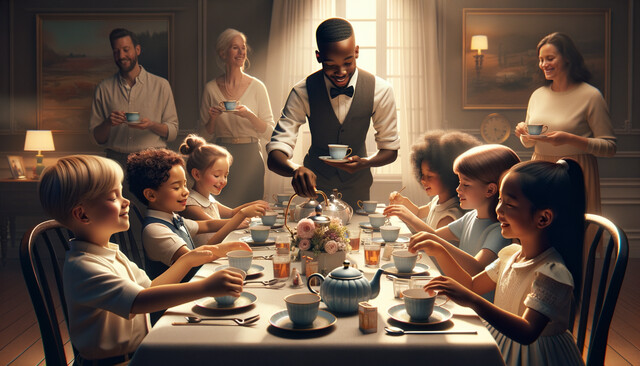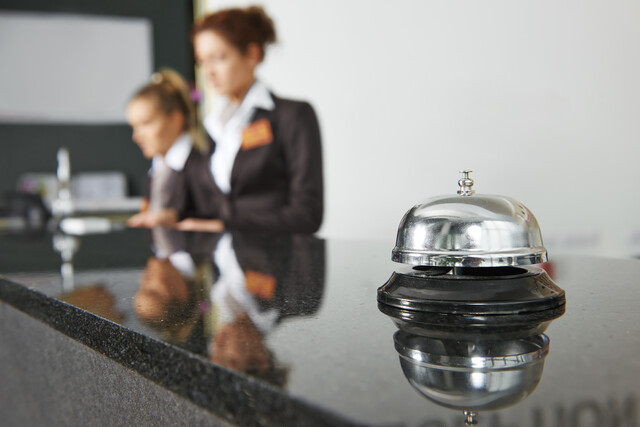For most event planners, the social arena is their fort�. Putting together a good party requires a lot of creativity and an ability to plan, organize, and coordinate. Planners must be very detail-oriented. Wedding planners obviously are the most well-known of the social event planners; however, most event planners are just as happy to put together a family reunion as to put together a wedding. The process is essentially the same. The reasons are just a little different, and so are some of the necessary steps.
Social events, as with corporate events, have to begin with the purpose and budget. What is the event? What is being celebrated? Why have an event or party? Then the question of budget comes into play. You frequently will be asked to put on a champagne and caviar event on a beer and pizza budget. Your job is not necessarily to tell your client you cannot do it. You will have to be creative and offer options. Show your client where the budget can be adjusted to spend more money on the food and less money on the entertainment or the d�cor. Try to discover your client's vision and see how you can help your client accomplish this within the constraints of the approved budget.
While they do not hold quite the same meaning in the social arena, they are no less important to your client. What you will discover in the social arena is that most of your clients are going to have a very powerful emotional attachment to the reason for the event. Your goal, then, will be to satisfy your client's need to make the event a success. It is wise to evaluate your abilities and decide early in the process whether you can make this event a successful one. It is always better to walk away from a contract than to have a failure and a bad reference about a job.
In the social arena especially, your first task is to establish whether you and your client are a good match for each other. After all, you are about to embark on a pretty intense relationship with this person that could last for a number of months. Be sure that both you and your client are well suited for each other. It is better to find out now that your styles are incompatible than after you have put in many hours on the event.
| Selecting Vendors |
When you are first starting out in the special event planning business, you really have to do your homework for your social events. Until you have a list of vendors with whom you have built a working relationship, it is essential that you proceed with caution.
Following the advice of the Better Business Bureau (BBB), it is wise to interview three or four possible vendors for each specialty. Talk to three or four caterers, three or four photographers, and representatives of three or four venues. Keep track of these conversations. Then, back at your office, your can compare all of them, their estimates, and what they offer for the price.
Ask for samples of each vendor's work. Look at the photographs from each photographer. Taste the food of each caterer. Ensure that each vendor is responsible for the samples. Sometimes you will be given a portfolio of the best work of a studio or restaurant; meaning that the work is a compilation of several people, not necessarily the one you intend to hire. This will not give you a good idea of the quality of the work from the vendor before you make any recommendations to your client.
Each time you meet with a new vendor, ask for a copy of his or her contract to keep. This will help you to become familiar with the terminology of contracts in the special event planning business and will help you evaluate whether a contract your client must sign is fair.
Remember, when you sign a contract, you must both agree to everything in the contract. In other words, if there is something in the contract that you do not like, or your client does not like, make the change before the contract is signed.
Most of the time, it is recommended that you work with vendors who have been in business for a while. It has long been established that most new businesses fail within the first year of operation. You do not want to hire a vendor that is a new company for an event that is more than a year out only to discover that the company has closed its doors and taken your client's deposit with it. The BBB also reminds us that for businesses that have been in business only a couple of months, there has not been enough time for complaints against them to have been lodged.
A strong recommendation is to pay for everything with a credit card. The Fair Credit Billing Act says that within three months of the time of a purchase, the charges on the credit card can be disputed. The credit card company will intervene on your behalf and try to resolve the matter, and you will not have to pay the balance of the disputed purchase or any interest accrued during the investigation period.
Lastly, if you are ultimately dissatisfied with the services of a vendor or any firm or company that you hire, write a letter to let the owner know. Also, write a letter to the BBB so that it will have your complaint on file for future customers who inquire about that vendor's quality of service.
| Weddings |
Weddings probably are the most common celebration in the life of a special event planner. Because most brides have no idea what they have to do to get their wedding ready, most will hire someone like you to help them with some or all of the planning for their wedding.
Weddings have some special considerations, such as:
-
Budgets: Which family pays for what?
-
Bridal party: Who will stand with the bride and groom?
-
Planning: Start way ahead of the event.
-
Engagement parties: Who will host them and where?
-
Correspondence and invitations: Select the guest list and stationery.
-
Wedding attire: Choices must be made for the bride, groom, attendants, parents, etc.
-
Caterer: Who will handle all the food and beverage needs for each event associated with the wedding?
-
Wedding cake: Select from specialty bakeries.
-
Recording the event: Make decisions about photography and videography.
-
Music: Choices must be made for the ceremony and the reception.
-
Wedding flowers: Selections are needed for the bride, bridesmaids, groom, groomsmen, parents, the ceremony, and the reception, as well as for possible preservation of some celebratory flowers.
-
Rings: Must be chosen and purchased.
-
Out-of-town guests: Transportation and accommodations must be arranged.
-
Wedding gifts.
-
Wedding ceremony: The type, style, and location must be chosen.
-
Wedding reception: Choices of location, food, music, and more must be made.Want to learn more? Take an online course in Special Events Planning.
-
Destination weddings: Arrangements must be made for participants to travel to a unique destination.
-
Honeymoon: Travel plans, tickets, and accommodations must be booked.
-
Post-wedding issues: Arrangements must be made to preserve the bridal gown, return rental clothing and accessories, obtain the wedding pictures, etc.
While each wedding will be unique, there are a number of steps that you will take that are familiar to you. What you have to remind yourself is that a wedding is a very special day for everyone and you must work very hard to ensure that it turns out to be a special one, indeed. Weddings, more than any other celebration, should go off without a hitch.
| Family Events: Reunions, Birthdays, and Anniversaries |
Reunions: Family reunions have become a huge event in the industry. These usually are large, casual events. With more and more families scattered across the country, even across the world, reunions are a way to connect with long-lost relatives. There are many families who set up reunion committees to plan the event, oversee the budget, and take care of every tiny detail. More often, however, people today are simply too busy with their jobs and lives to put the necessary time into planning a good reunion. As a result, they are turning to event planners. The event planner will take care of as much or as little of the reunion planning process as your family desires.
A successful family reunion has many steps and, as an event planner, you can do most of them for your client:
-
Determine which family is to be invited to the reunion. This step will need input from the family.
-
Based on the previous step, create a guest list. Get the names of everyone: family, spouses, and children. As an event planner, you will need to get in touch with several branches of the family to aid your client in tracking down appropriate members of the family tree.
-
Well in advance of the reunion, you will want to send a simple survey to the family members invited. This survey will help you and your client decide on a date and location. A discussion of the budget will begin here.
-
Select the date.
-
Select and reserve the reunion site. Because reunions usually include a number of children, finding a venue that is family-friendly is usually a good idea. Some family reunions can be held at zoos, at theme parks, or at specialty facilities, such as a dude ranch.
-
Establish a budget. Your client will have to determine whether he or she will bear all the financial burden of the event, or if a per-family fee will be charged to cover the cost of the event.
-
Determine the theme.
-
Create a mailing list, e-mail, postal service, or both.
-
Help to determine the menu. Will the event be catered? In whole or in part?
-
Plan activities. Because family reunions include people of all ages, finding activities that will span the generation gap is an important part of your job. This might be a good time to introduce your client to clowns, face painters, magicians, caricature artists, etc.
-
Determine the need for photography and videography.
-
Send invitations and keep track of the responses.
-
Print a program.
-
Decorate for the event.
| Rites of Passage: Bar/Bat Mitzvahs, Quincea�era, Confirmation, etc. |
People throughout the world pay particular attention to various rites of passage in their lives or in the lives of their children. Understandably, these are fraught with highly charged emotions and can be stressful. These events are typically based on the attainment of a certain age or stage in one's lifetime. Typical rites of passage include baptisms, bar and bat mitzvahs, confirmations, Quincenera, graduations, retirement, and even funerals. Such ceremonies usually are ritualized and can be heavily religious or with the heavy weight of cultural values. Because of this, it is wise to learn as much about the event as you possibly can to avoid any mistakes when interacting with your client.
Such celebrations can be as ornate and involved as planning a wedding, even though the guest of honor usually is a teenager:
-
Bar and bat mitzvahs: These celebrations honor a boy or girl who has come of age in the Jewish religion, usually age 13 for the boy and 12 for the girl. The religious ceremony celebrates the first time in which the child participates as an adult in a normal Sabbath service. Following the ceremony, the celebration can be held in the child's home or in a banquet hall.
-
Quincea�era: This is a celebration of a girl's 15th birthday, typically by Spanish-speaking Roman Catholics. The celebration begins with a religious ceremony in which the girl affirms her faith. Afterward, a reception is held, often in a banquet hall. The Quincea�era's court comprises her parents, godparents, and the Chambelan, or young man who is her escort for the evening. Typically the girl's godparents arrange for the celebration.
-
Sweet 16: Usually this party commemorates a girl's 16th birthday. It can be as traditional or elaborate as the client wishes. There usually are no religious overtones to this celebration.
-
Debutante ball: This event, while sounding dated, still occurs today. As it historically indicated, a debutante is a young lady who has reached the age of maturity, is eligible for marriage, and is introduced to society in this formal presentation. Most modern balls have been turned into charity events in which the parents of the debutante donate to a charitable cause, and the people who have been invited actually pay for their tickets. Such balls can be very ornate and formal and take months and months of planning.
| Cocktail Parties |
Cocktail parties are making a huge comeback. One of the reasons is that it is much easier to entertain a large group of people without having to have a formal sit-down dinner. Cocktail parties typically are held around 5 or 6 p.m. and run for only two hours. Cocktails, beer, and wine are served, along with various appetizers, tapas, or hors d'oeuvres. Cocktail parties have less variety, with only a couple of types of hors d'oeuvres trays being passed that include one or two stationary items. A stationary item is something that is in one place, like a large wheel of cheese that must be shaved, or a charcuterie plate, which is a plate made up of sausages, ham, pat�s, and other cooked meats.
Sometimes your client will opt for a cocktail party in lieu of dinner, in which case it usually starts later in the evening and will have up to six or seven types of hors d'oeuvres trays and two or three stationary items. Cocktail parties can be held in your client's home or can be set up as a more formal affair at a rented venue, such as part of a fundraising gala or even a wedding. You may be hired to host the entire cocktail party, or your client may choose to have the party at a local restaurant. If you also are a caterer, you may be asked to plan and present the entire cocktail party for your client.
| Wine-tasting and Pairing Meals |
Before you attempt this type of an event, get some training. Take wine-tasting and wine knowledge classes. Pairing wine with food is often considered to be an art form. For people who enjoy the perfect wine with the perfect dish, such an event is immensely satisfying. You do not have to be an expert, but you do have to have some knowledge about wine and food before you plan such an event.
| Intimate Dinners |
These are smaller events but actually can give you a greater understanding of your business than some of the larger events. The reason for this is that you are more intimately involved in the planning of every detail of the dinner. You actually will sit down with your client and get ideas for the dinner. Find out your client's favorite dishes and get an idea of likes and dislikes. Find out if your client has a preference for a specific type of food for each course. Then you will sit down with the selected chef and ask him or her to design a menu specifically for your client. Once you have established the menu, send it back to your client complete with a list of the ingredients necessary for the dinner.
| Other Events |
As a special event planner, you will be called on to plan for anything from a baby shower to a political rally. Look at the following list and see the great variety of events that likely will make up your job. No two events will ever be alike. That is one of the best perks of this business!




























